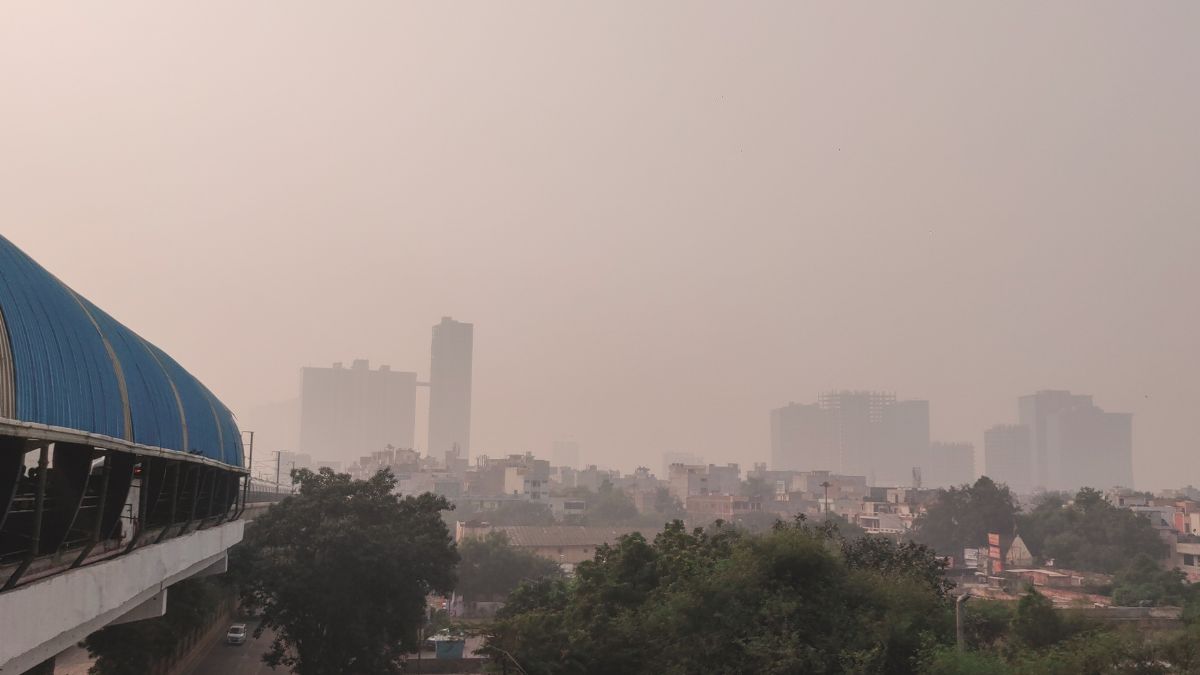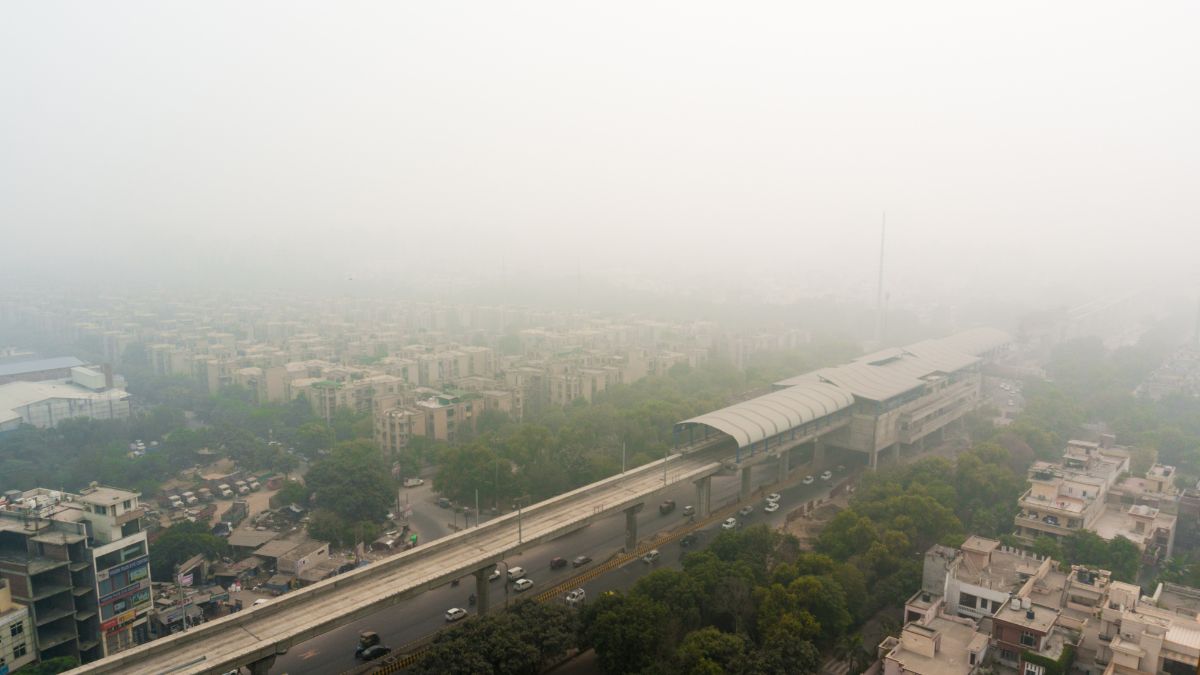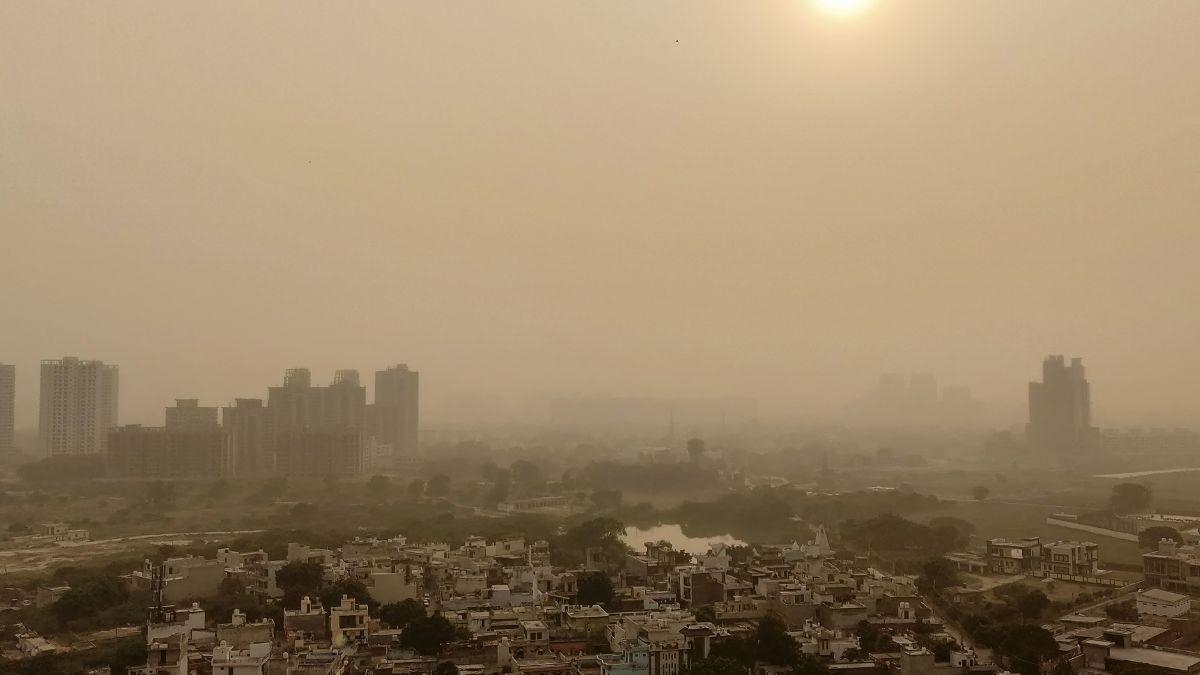- By Priyanka Munshi
- Wed, 08 Nov 2023 12:06 PM (IST)
- Source:JND
In many areas, the declining air quality index has resulted in a number of health-related issues that are cause for concern. High concentrations of pollutants and particle matter, which are common indicators of poor air quality, can aggravate respiratory conditions, aggravate allergies, and raise the risk of lung diseases.
Also, long-term exposure to dirty air is associated with many cardiovascular disorders, including an increased risk of heart attacks. This concerning trend emphasises how critical it is to address air quality issues in order to safeguard public health and slow the rising incidence of heart attacks.

High concentrations of pollutants and particle matter, which are common indicators of poor air quality. (Image Credit: Canva)
Dr. Viveka Kumar, who is the Principal Director and Chief of Cath Labs (Pan Max) in Cardiac Sciences at Max Super Speciality Hospital in Saket, exclusively told Jagran English about the current air quality index in Delhi that can cause heart attacks.
Also Read: Just One Glass Of Honey Water And Get These 5 Skin Benefits
Dr. Viveka said, "Recent few days, headlines have been plunged with poor air quality index. In the past week, the 24-hour average air quality index has remained > 400 (very poor). It prompted the center to implement all emergency measures and mandates under the final stage of its Air Pollution Control Plan, called GRAP (Graded Response Action Plan). The concentration of PM 2.5, fine particulate matter capable of penetrating deep into the respiratory tract and triggering health problems, exceeded safe limits of 60 ug/m3 by 7-8 times at multiple locations in Delhi, NCR."
He also said," Unfavorable climate, vehicle emissions, paddy straw burning, crackers, and other local industries contribute to poor air quality in Delhi, NCR, every year. Deteriorating air quality index increases the risk of cardio-vascular disease in winters. A global burden of disease study estimates that air pollution was responsible for 9 million deaths worldwide, >60% of which were cardio-vascular, including ischemic heart disease, including heart attack (32%), and stroke (28%). PM 2.5 is strongly associated with an increased risk of heart attack, stroke, and death from heart diseases. Several mechanisms include enhanced coagulation and thrombosis, a propensity for arrhythmias, acute arterial vasoconstriction, a systemic inflammatory response, and the chronic promotion of atherosclerosis."
Also Read: 5 Health Benefits Of Adding Turnip Into Your Diet Plan This Winter Season

In many areas, the declining air quality index has resulted in a number of health-related issues that are cause for concern. (Image Credit: Canva)
Tips To Protect Heart From Air Pollution
SOLUTION
Avoiding personal vehicle use, fire crackers, using a face mask, and traveling to heavily polluted regions
ADVICE
Any chest pain, heaviness, or chest congestion should not be taken lightly, and immediate medical attention should be sought.

